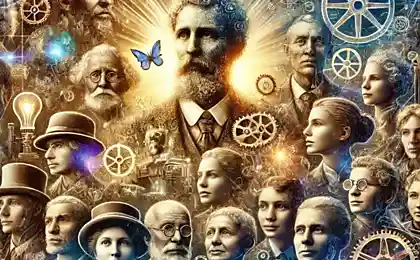168
Melancholy of the world order: How to Turn Existential Grief into Power

When pain for peace becomes a vehicle: The Art of Living with Your Eyes Open
According to the WHO, 42% of people aged 25-40 experience existential longing associated with global issues. But what if this “wounded wisdom” is not an enemy, but a compass for personal evolution?
1. Acknowledge: pain ать weakness
Victor Frankl, in Man’s Search for Meaning, said, “Suffering is part of human potential.” Neurologists have found that areas of the brain responsible for empathy and creativity are activated in a state of conscious sadness.
Practice:
- Keeping a Pain Diary: 3 sentences a day about what hurts
- Create an 'Emotional Liberation' Ritual: Burn Records with Gratitude
2. Turning the abstract into concrete

A study from Oxford University (2022) found that micro-activity reduced existential anxiety by 67%. For example, instead of “saving the planet,” it means “assembling batteries in the neighborhood.”
The algorithm:
- Make a list of 50 “small things” (feeding stray cats, reading to children)
- Use the “5 Minutes of Influence” Technique: Daily Micro-Action
3. Building the Bridge of Meaning
Carl Jung called it “individuation through suffering.” Modern psychology suggests:
Steps:
- Find the archetype: Which mythological character reflects your struggle?
- Create an Influence Map: How Can Your Unique Skills Help the World?
4. Accept the paradox: light in cracks

The Japanese philosophy of wabi-sabi teaches perfection in imperfection. Neuroscientists confirm that contemplation of asymmetric forms reduces cortisol levels by 23%.
Exercise:
- Photo project “Imperfect beauty”: 30 days to shoot “imperfect”
- Meditation on pottery: 10 minutes a day to observe cracks
Glossary
Existential grief
A deep experience of the imperfection of being
Resilience
Ability to adapt to crises
Wabi-sabi
The Japanese Concept of Accepting Impermanence
Cognitive dissonance
Conflict between reality and beliefs
7 signs of losing touch with reality: How to recognize and return to life
11 Things to Do to Learn to Value Your Time























